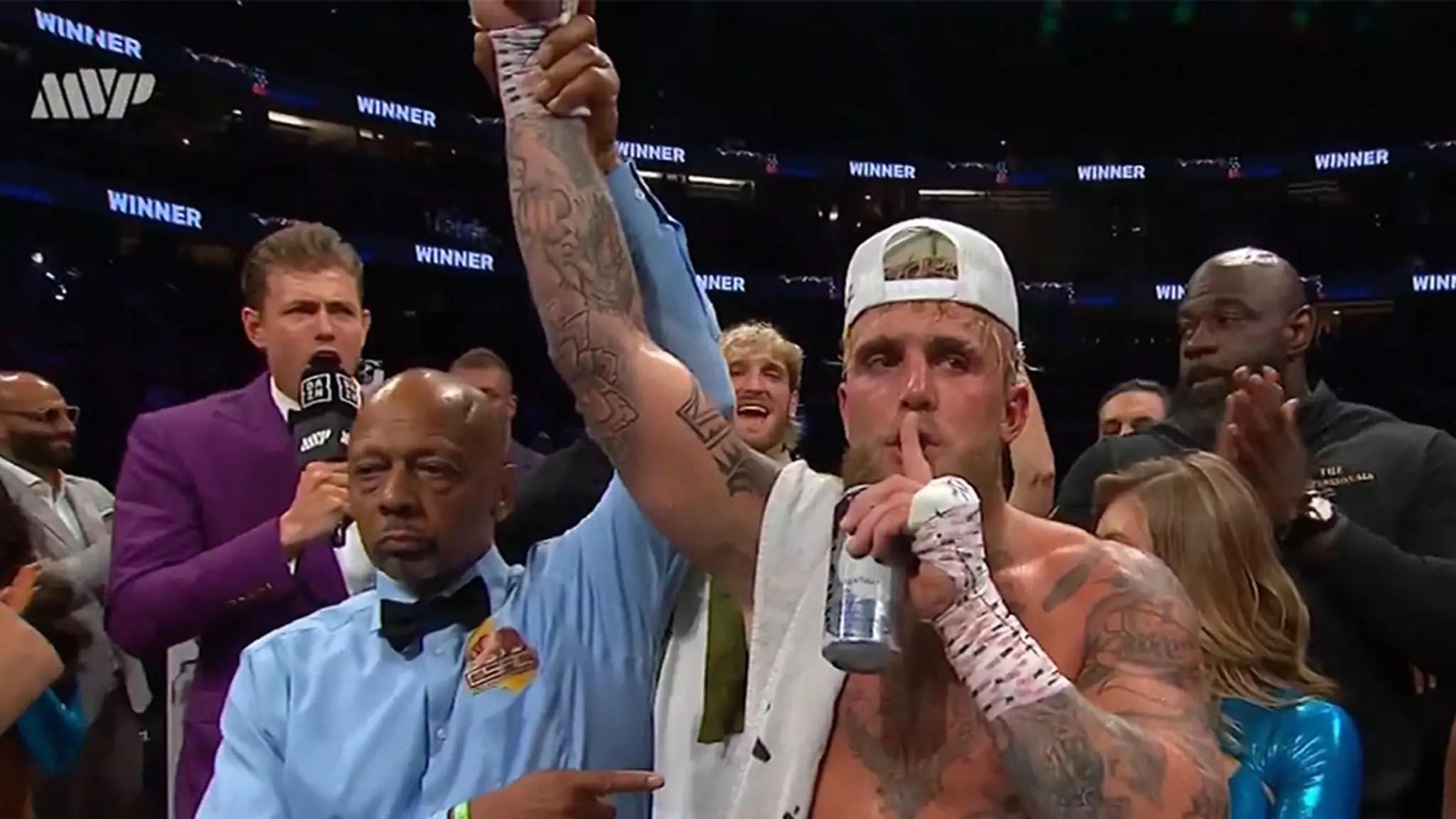Jake Paul’s recent unanimous decision victory over Julio Cesar Chavez Jr. was more than just another notch on his evolving boxing record—it underscored a calculated approach to the sport that challenges traditional boxing narratives. Despite the crowd’s fervent support for the seasoned Chavez Jr., Paul’s youthful energy and tactical precision dictated the early rounds, establishing his dominance from the outset. Where many expected a fiery showdown fueled by Chavez Jr.’s championship pedigree, the fight unfolded in Paul’s favor due to the former champ’s surprising passivity and lack of engagement during critical phases. This opening sequence demonstrated Paul’s ability not merely to outbox opponents but to psychologically unsettle them through consistent pressure and activity.
The Fan Discontent vs. Fighter Reality
The palpable frustration among spectators echoed an age-old boxing dilemma: the tension between audience expectations and tactical fight execution. Chavez Jr.’s reluctance to engage actively in the early stages drew boos and disappointment, underscoring how raw energy and aggression often satisfy crowds more than methodical strategy. However, Chavez Jr.’s complaints about fouls, though unacknowledged by the referee, further revealed cracks in his composure. This episode illuminated a critical point—mental resilience is as pivotal as physical readiness in elite competition. The crowd’s dissatisfaction wasn’t merely about the fighting quality; it expressed a craving for drama and unpredictability, elements Paul managed to control through disciplined ring generalship.
Late-Game Resistance and Endurance Tests
Chavez Jr.’s resurgence starting around the sixth round offered a glimpse of the veteran’s enduring skills, as he began to land meaningful punches and apply pressure. This shift momentarily reignited the bout’s excitement and tested Paul’s stamina and adaptability. The physical toll on Paul towards the final rounds highlighted the grueling nature of the fight and the challenges of maintaining dominance over a battle-hardened opponent. Although Chavez Jr. found more success late, his delayed response was insufficient to overturn the deficit caused by the earlier rounds. This dynamic showcased not only Paul’s early-ring proficiency but also the crucial importance of pacing and endurance—areas where Paul still faces tests against top-tier opponents.
Beyond the Ring: Paul’s Growing Influence and Future Prospects
Despite mixed reactions from spectators, Paul confidently asserted his presence with assertive remarks that reflect rising self-assurance rarely seen from crossover athletes. His willingness to confront crowd negativity head-on reveals a mindset focused on transcending skeptics. Beyond the fight, his compassionate gesture toward Ben Askren signals maturity and awareness, qualities often overlooked in narratives surrounding Paul’s career. Looking ahead, the heavyweight names Paul mentioned—Anthony Joshua, Gervonta Davis, Tommy Fury—represent both formidable challenges and validation of his ambition. His approach to selecting opponents and engaging with the boxing establishment suggests that Paul is strategically carving out a niche where entertainment meets competitive legitimacy.
Jake Paul’s trajectory in boxing defies easy categorization. While critics may question the quality of opposition or the spectacle’s appeal, his capacity to win decisively against former champions and handle psychological pressure embodies a new archetype of fighter-entrepreneur. Whether Paul can ascend to the pinnacle occupied by traditional boxing legends remains uncertain, but his recent performance against Chavez Jr. confirms that he is a force demanding serious consideration in today’s boxing discourse.


Leave a Reply